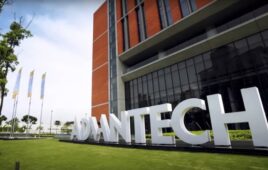City Labs, Inc. has released its first commercial product, a tritium-based betavoltaic power source that enables low-power microelectronic and sensor applications where battery replacement is difficult, impossible, or life-threatening. The Model P100a betavoltaic power source provides a source of continuous nanoWatt power for 20 years or more in microelectronic platforms. Applications include environmental pressure/temperature sensors, intelligence sensors, medical implants, trickle charging lithium batteries, semi-passive and active RFID tags, silicon clocks, SRAM memory backup, deep-sea oil well electronics, lower power processors (e.g. ASICs, FPGAs, microcontroller units, etc.). As tested and confirmed by Lockheed Martin, the City Labs NanoTritium betavoltaic is able to resist broad temperature extremes where traditional lithium batteries are subject to failure. City Labs asserts the first company in the betavoltaic battery industry to be granted a Product Regulatory General License to manufacture, sell, and distribute its NanoTritium betavoltaic power sources. These devices contain small amounts of tritium, a radioisotope commonly found in Exit signs and diver’s watches. The General License provides the end-user with a safe, reliable and commercially available betavoltaic power source, and eliminates both the burden of regulatory paperwork and end-user radiological training. The General License also allows for easy purchase of the betavoltaic power source without requiring the customer to have a prior radiation license.
City Labs, Inc.
305-909-7593, www.citylabs.net
Filed Under: Industrial automation




